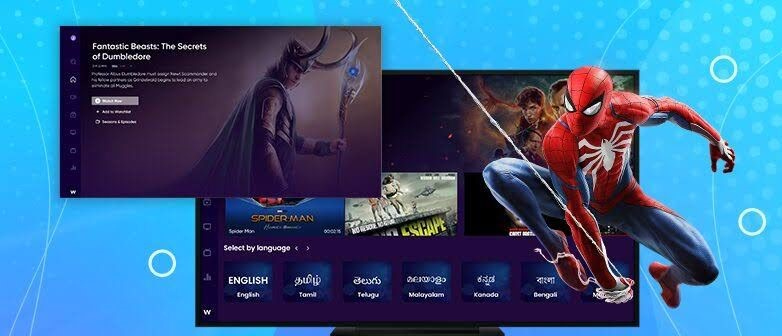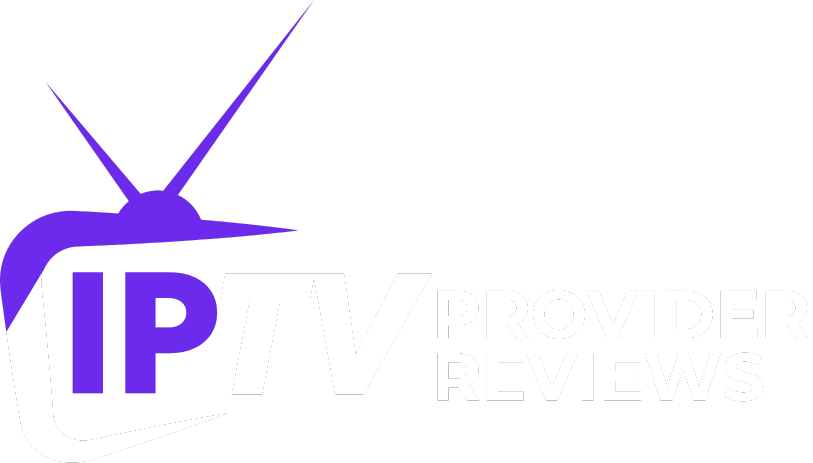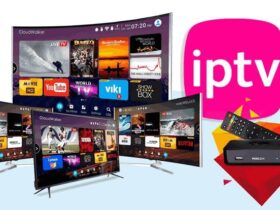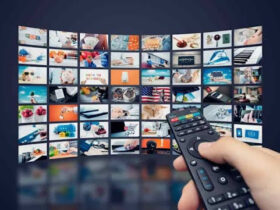
The term “cord-cutting” has become a buzzword in the world of media consumption, referring to the growing trend of consumers abandoning traditional cable and satellite television subscriptions in favor of more flexible and cost-effective alternatives. Central to this shift is Internet Protocol Television (IPTV), which plays a significant role in this evolving landscape. In this comprehensive analysis, we’ll explore how IPTV is contributing to the cord-cutting phenomenon, its advantages over traditional TV services, and its implications for both consumers and the media industry.
Visit this website for IPTV services:
1. Understanding Cord-Cutting
Cord-cutting describes the move away from conventional cable or satellite TV services toward internet-based alternatives. This trend is driven by several factors, including the desire for lower costs, greater flexibility, and the availability of diverse content. Traditional TV packages often come with high monthly fees and lengthy contracts, which can be restrictive for consumers who seek more control over their viewing experience.
IPTV has emerged as a key player in this transition, providing a viable solution for viewers who want to escape the constraints of traditional TV services while still enjoying a comprehensive range of content.
2. IPTV: A Definition and Overview
IPTV delivers television content over the internet using Internet Protocol (IP), rather than through traditional terrestrial, satellite, or cable signals. IPTV services can be categorized into live television, video-on-demand (VOD), and time-shifted TV, each offering unique benefits:
– Live TV: Streams real-time programming similar to traditional TV broadcasts.
– Video-on-Demand (VOD): Allows users to access a library of content whenever they wish.
– Time-Shifted TV: Provides the ability to pause, rewind, or fast-forward live broadcasts.
These features give IPTV a competitive edge in the cord-cutting era, offering greater flexibility and a more customized viewing experience.
3. Cost Efficiency and Flexibility
One of the most compelling reasons for cord-cutting is cost savings, and IPTV often provides a more budget-friendly alternative to traditional cable or satellite packages. Traditional TV subscriptions typically come with a plethora of channels, many of which viewers rarely watch. IPTV services, on the other hand, often offer more tailored packages, allowing consumers to select and pay only for the channels and content they actually use. To enjoy the IPTV services in economical prices click here:
Additionally, IPTV services often operate on a month-to-month basis without long-term contracts, giving consumers the freedom to switch services or cancel their subscriptions with minimal hassle. This flexibility is particularly appealing to those who want to avoid the rigid commitments of traditional cable contracts.
4. Content Variety and Personalization
IPTV platforms excel in offering a vast array of content that can be personalized to suit individual preferences. Unlike traditional TV, which often bundles channels into large packages, IPTV services allow users to choose specific channels, genres, or even on-demand content tailored to their interests. This level of customization ensures that viewers can access the content they want without sifting through channels they don’t.
Furthermore, IPTV platforms often include original programming and exclusive content not available through traditional TV services. The rise of streaming services like Netflix, Amazon Prime Video, and Hulu, which use IPTV technology, has expanded the content landscape significantly, providing viewers with access to a diverse range of movies, series, and documentaries.
5. Technological Advancements
The technological foundation of IPTV contributes significantly to its appeal in the cord-cutting movement. With high-speed internet connections becoming more widely available, IPTV services are able to deliver high-definition (HD) and even 4K content to viewers with minimal buffering or interruptions. The ongoing advancements in internet technology, such as the rollout of 5G networks, promise to further enhance the quality and reliability of IPTV services.

Moreover, IPTV platforms are compatible with various devices, including smart TVs, computers, tablets, and smartphones. This multi-device accessibility allows viewers to watch their favorite content on any screen, whether they’re at home or on the go, making IPTV a versatile choice for modern consumers.
6. The Impact on Traditional Media Providers
The rise of IPTV and the broader cord-cutting trend have had a profound impact on traditional media providers. Cable and satellite companies are facing increased competition as more consumers opt for internet-based services. In response, many traditional providers are adapting by launching their own IPTV or streaming services, offering a hybrid model that combines the benefits of traditional TV with the flexibility of modern streaming options.
This shift has also prompted traditional media companies to rethink their business models, focusing more on digital content distribution and on-demand offerings. As a result, the media industry is undergoing a significant transformation, with a greater emphasis on providing personalized and accessible content.
7. Future Trends and Developments
Looking ahead, the role of IPTV in the cord-cutting movement is expected to grow even more prominent. As technology continues to evolve, we can anticipate further innovations in IPTV services, including enhanced content recommendations powered by artificial intelligence, more immersive viewing experiences through virtual reality (VR), and even greater integration with smart home technology.

The expansion of 5G networks will also contribute to the growth of IPTV by providing faster and more reliable internet connections, enabling seamless streaming of high-quality content. As these trends develop, IPTV is likely to play an increasingly central role in shaping the future of media consumption.
Conclusion
IPTV is undeniably a key driver in the cord-cutting phenomenon, offering consumers an alternative to traditional cable and satellite TV that is more flexible, cost-effective, and personalized.
To enjoy the IPTV services in economical prices click here:
By leveraging the power of the internet to deliver a diverse range of content, IPTV is transforming the entertainment industry and challenging traditional media providers to innovate and adapt. As technology continues to advance, IPTV’s influence on the media landscape is expected to grow, shaping the future of how we access and enjoy television and video content.









Leave a Reply